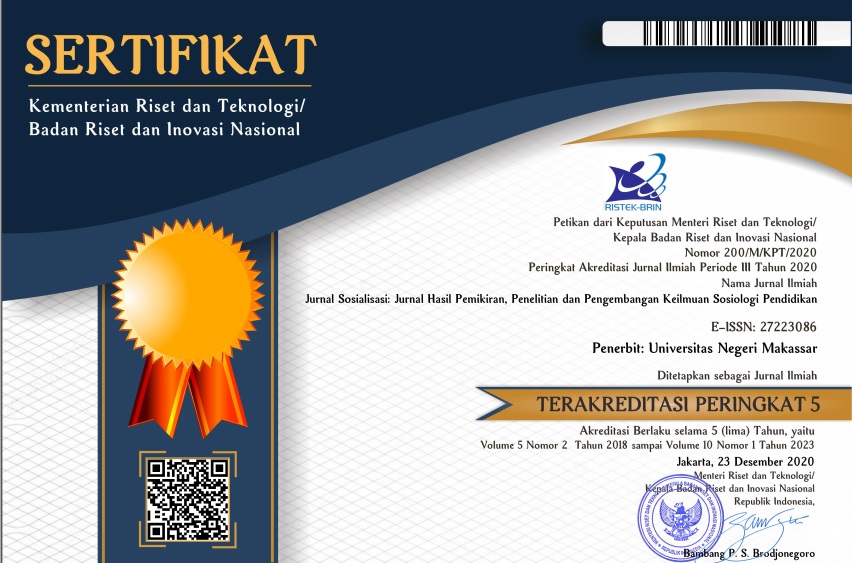Evaluating the Concepts of Brahman Atman and the intrinsic value of nature in Hindus’ Discourse on Human-Nature Relation and Environmental Change
(1) University of Calabar
(*) Corresponding Author
DOI: https://doi.org/10.26858/sosialisasi.v1i1.32252
Abstract
Evaluating the Concepts of Brahman Atman and the intrinsic value of nature in Hindus’ Discourse on Human-Nature Relation and Environmental Change
Elizabeth Okon John
Department of Religious and Cultural studies,
University of Calabar, P.M.B 1115, Eta 540004,
Etta Agbo Rd, Calabar, Nigeria.
ABSTRACT
For years, adherents and scholars of Hinduism have subconsciously or unintentionally created a psychological impression that Hindus’ religious beliefs and ethical principles on human-nature relations are without flaws and perhaps the most suitable panacea to the global existential problem of environmental change. As plausible as this notion appears on face value, this paper brings to the fore the immanent lacunas in the Hindu view of human-nature relations. The paper is specifically aimed at pointing out the ontological dangers associated with the religious belief in the equality of all beings (sentient and non-sentient) as enshrined in the principle of Brahman Atman. It also exposes the implication of stating categorically that nature has an absolute intrinsic value which must be protected by all possible means. To achieve this objective, the paper adopts the phenomenological tool in analyzing the subject under consideration and employs the secondary research method of gathering information by using online and hard copy journal articles and existing textbooks on the subject and other related matters. The paper culminates by stating that, ontologically, all beings are not equal and that though nature has an intrinsic value based on its mode of existence and its spiritual connection, denying its instrumental value will make us not be true to ourselves.
Keywords: Brahman; intrinsic value; Human-Nature Relations; Environmental Change.
Keywords
Full Text:
PDFArticle Metrics
Abstract view : 163 times | PDF view : 38 timesRefbacks
- There are currently no refbacks.

This work is licensed under a Creative Commons Attribution 4.0 International License.


































